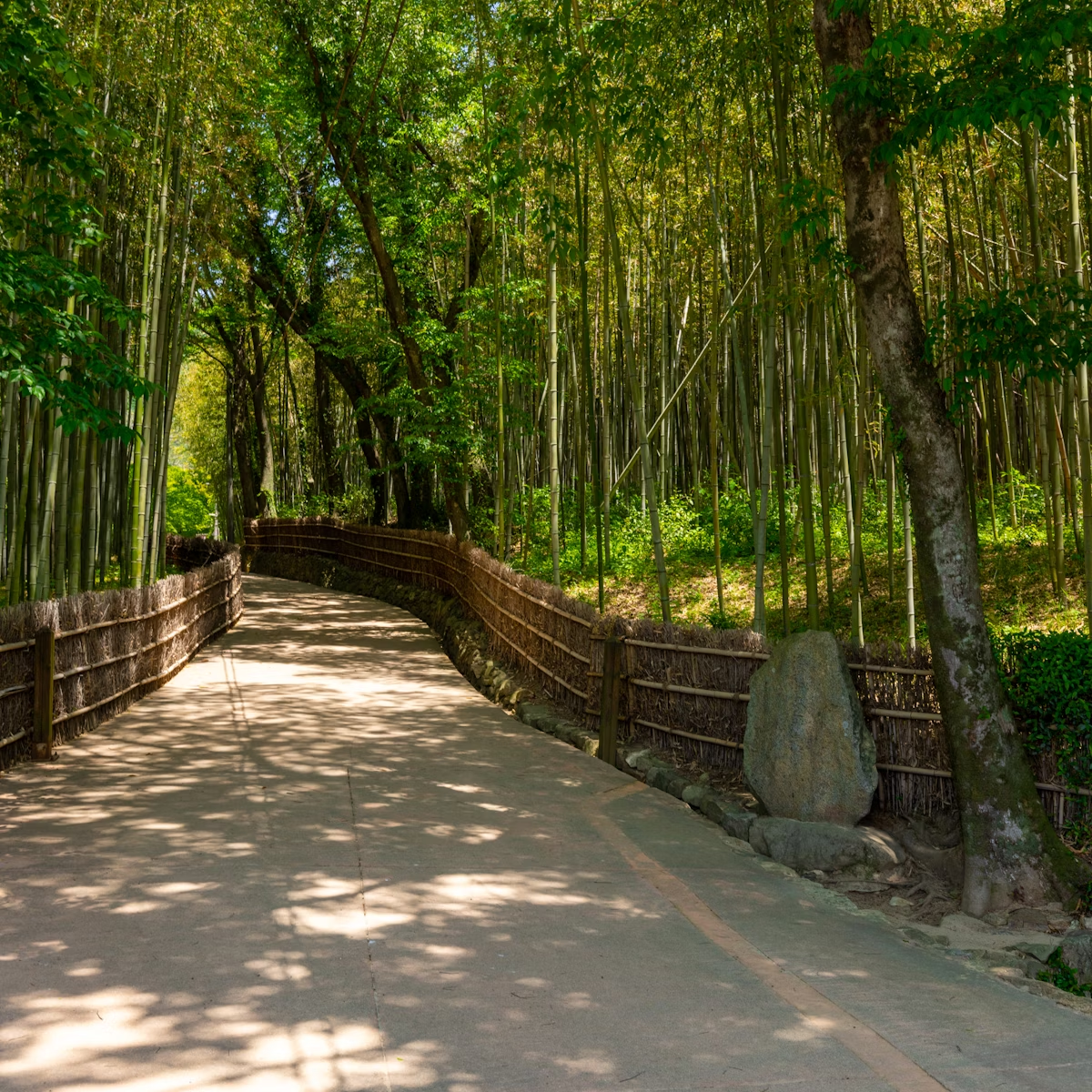Founded by priest Yeongi in AD 544 after his return from India, this ancient temple dedicated to the Birojana Buddha is enveloped by the beautiful natural surroundings of Jirisan National Park. Last rebuilt in 1636, it has endured five major devastations in its history, including the Japanese invasion of 1592.
On the main plaza is Gakgwang-jeon, a huge two-storey hall. Inside are paintings that are national treasures, nearly 12m long and 7.75m wide, featuring Buddhas, disciples and assorted holies. Korea’s oldest and largest stone lantern fronts Gakgwang-jeon, which was once surrounded by stone tablets of the Tripitaka Sutra (made during the Silla era). These were ruined during the Japanese invasion.
Up many further flights of stairs is Hwaeom-sa’s most famous structure, Sasaja Samcheung (사사자 삼층석탑), a unique three-storey pagoda supported by four stone lions. The female figure beneath the pagoda is said to be Yongi’s mother; her dutiful son offers her tea from another lantern facing her. At the time of research, it was closed for restoration.
The temple is about 25 minutes’ walk from the bus stop. Templestays (₩40,000) are possible at Hwaeom-sa. A large tourist village is at the park entrance with a number of restaurants and affordable accommodation; prices rise on weekends.
It is possible to continue from the temple along a trail through Hwaeom-sa Valley. After about 2½ to three hours the trail begins to ascend to a shelter, Nogodan Sanjang (a strenuous four-hour hike). From the shelter, the trail continues to rise until you are finally on the long spine of the Jirisan ridge.

